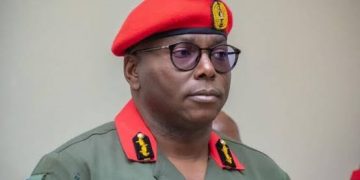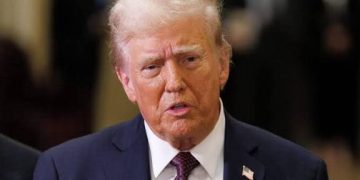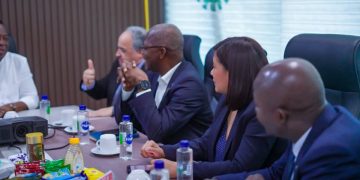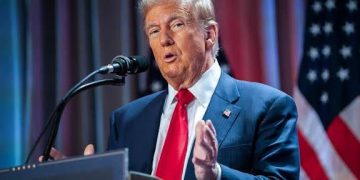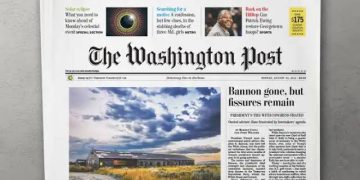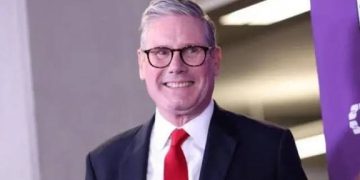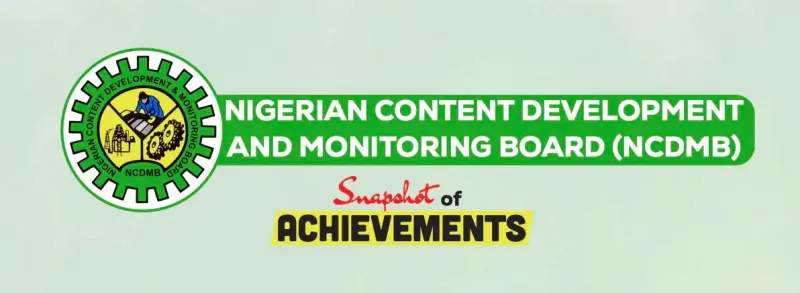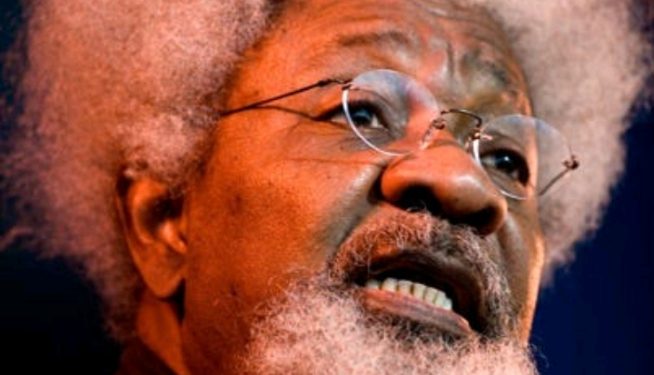The U.S. government has remained transparent in its policies regarding visa bans and revocations. American visa denials are guided by strict considerations such as national security, public safety, and foreign policy interests. Under U.S. immigration law, a person may be declared “ineligible for a visa” or denied entry based on potential threats, criminal history, or involvement in activities contrary to American values and interests.
To understand the criteria for banning an individual from entering the United States is to recognize that no one is above such a policy.
Nigerian literary icon, playwright, and poet Wole Soyinka is a towering figure whose works have shaped modern African literature and global thought. Widely regarded as one of Africa’s greatest writers and among the world’s most important dramatists, Soyinka has authored three novels, ten collections of short stories, seven poetry collections, twenty-five plays, five memoirs, and numerous essays and translations. In 1986, he became the first African to win the Nobel Prize in Literature, recognized for his “wide cultural perspective and poetic overtones fashioning the drama of existence.”
Recently, however, the revered writer has found himself at the center of an international controversy following the revocation of his United States visa. The incident, which has drawn global attention, was confirmed when Soyinka disclosed that he had received a notice from the U.S. Consulate in Lagos on October 23, requesting his appearance with his passport for visa nullification.
Speaking humorously during an event at Kongi’s Harvest Gallery in Lagos, Soyinka read the consulate’s message aloud and quipped, “I like people who have a sense of humour, and this is one of the most humorous requests I’ve had in all my life. Would anyone like to volunteer in my place? Take the passport for me? I’m a little bit busy and rushed.”
Soyinka, who previously held U.S. permanent residency, allegedly destroyed his Green Card following Donald Trump’s election in 2016. His decision at the time was a symbolic protest against the former U.S. president’s immigration policies. The literary giant has since remained candid in his opinions about American politics, recently drawing parallels between Donald Trump and Ugandan dictator Idi Amin remarks some speculate may have contributed to the revocation of his visa.
In June 2025, a presidential proclamation issued by Donald Trump expanded travel restrictions for citizens from 19 countries, citing concerns over “foreign terrorists and other national security and public safety threats.” Such actions are often justified under the umbrella of national security a recurring rationale for American restrictions on foreign nationals, goods, or organizations.
Although the U.S. Consulate did not specify the reason for Soyinka’s visa nullification, the timing and nature of the decision have fueled widespread speculation. Some analysts suggest that the move could be politically motivated or linked to the playwright’s outspoken criticism of various world leaders.
Interestingly, while Soyinka has been one of Nigeria’s most consistent critics of past administrations including that of former President Goodluck Jonathan (2010–2015) he has not publicly condemned the current government of President Bola Ahmed Tinubu. This perceived silence has drawn mixed reactions, with some observers interpreting it as a show of tribal loyalty.
Nonetheless, Soyinka’s legacy remains that of a fearless intellectual who confronts power with words rather than weapons. His sharp commentaries on tyranny, corruption, and social injustice have earned him both admiration and controversy throughout his storied career.
Closing his remarks at the Lagos event, Soyinka maintained his characteristic composure and wit, saying, “I want to assure the consulate, the Americans here, that I am very content with the revocation of my visa.” Then he added with a smile, “Is Soyinka going to write a play about Donald Trump?”
Even in the face of diplomatic rebuke, Wole Soyinka continues to embody the defiant spirit of an artist whose pen remains sharper than politics, a global citizen unbound by borders, and a conscience that speaks truth to power.
Ultimately, criticism should be without boundaries and without faces. As we await the next reason for a ban or perhaps the next drama, it remains essential to call out those guilty of bad governance and to call black and white by their rightful names.
Daniel Nduka Okonkwo is a seasoned writer, human rights advocate, and public affairs analyst, widely recognized for his incisive commentary on governance, justice, and social equity. Through his platform, Profiles International Human Rights Advocate, he has consistently illuminated critical social and political issues in Nigeria and beyond, championing accountability, transparency, and reform. With a portfolio of more than 1,000 published articles available on Google, Okonkwo’s works have appeared in prominent outlets such as Sahara Reporters and other leading media platforms. Beyond journalism, he is an accomplished transcriptionist and experienced petition writer, known for his precision and persuasive communication. He also works as a ghostwriter and freelance journalist, contributing his expertise to diverse projects that promote truth, integrity, and the protection of human rights.

